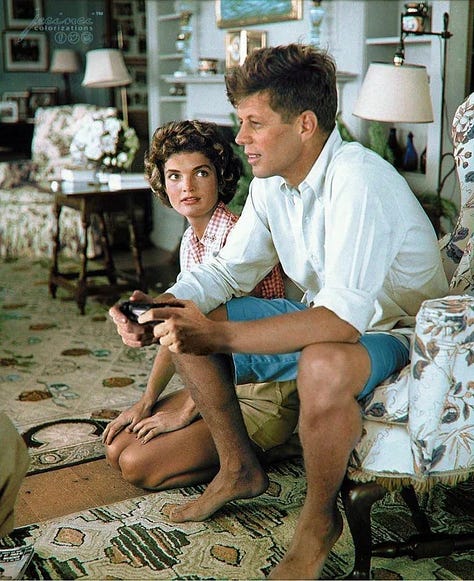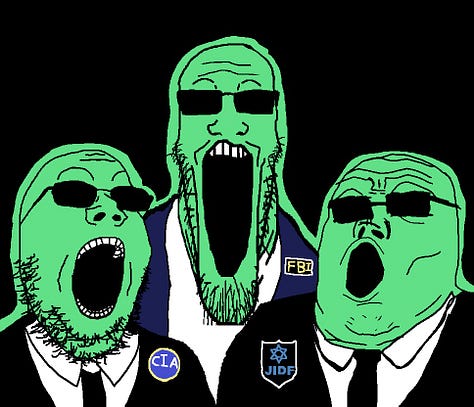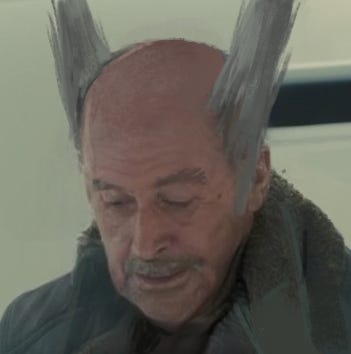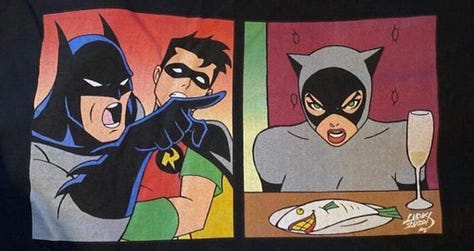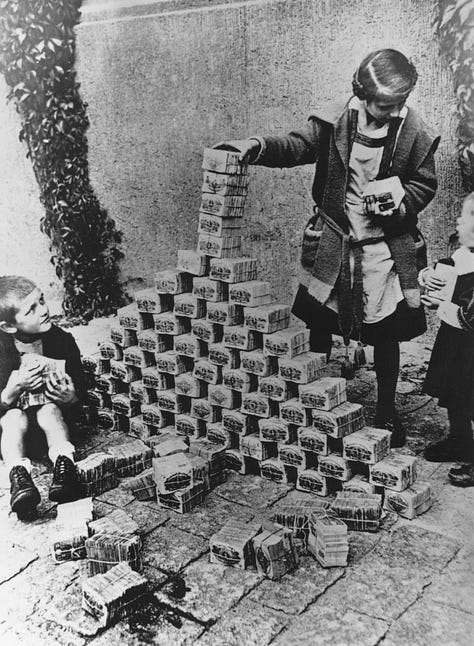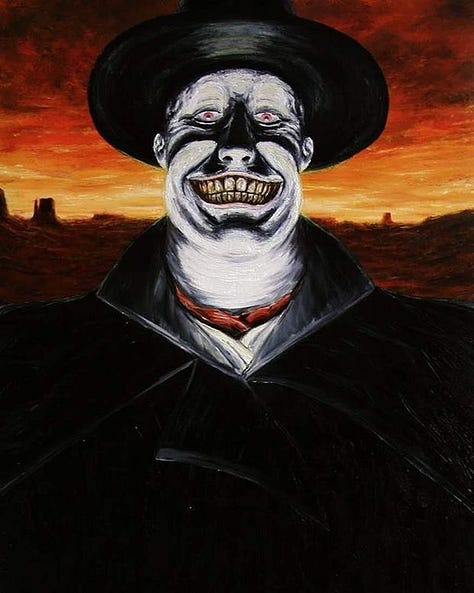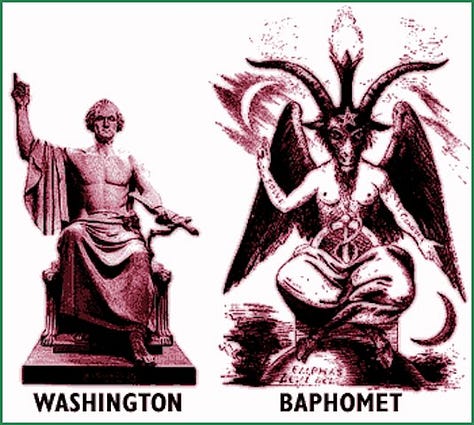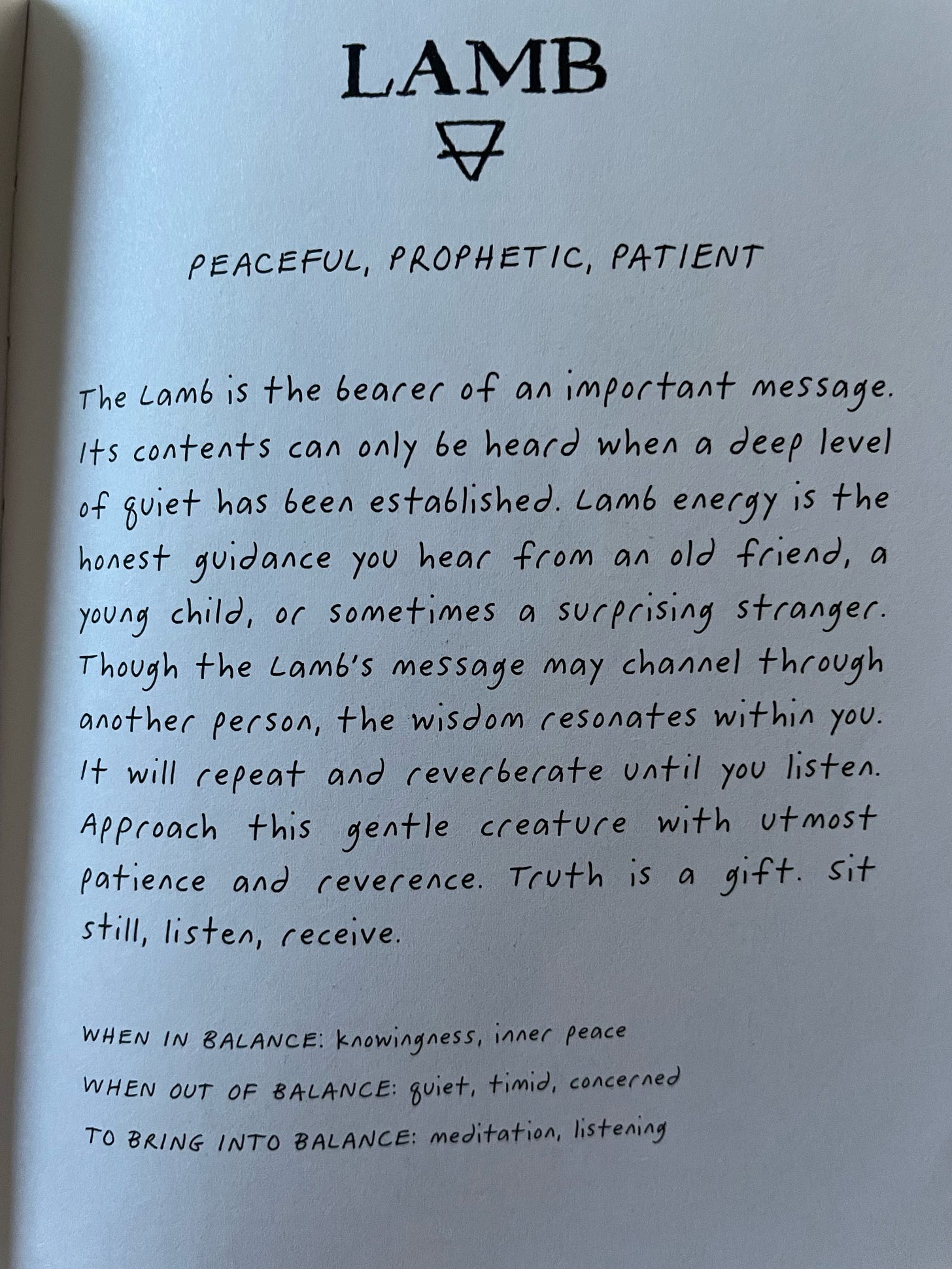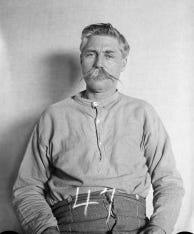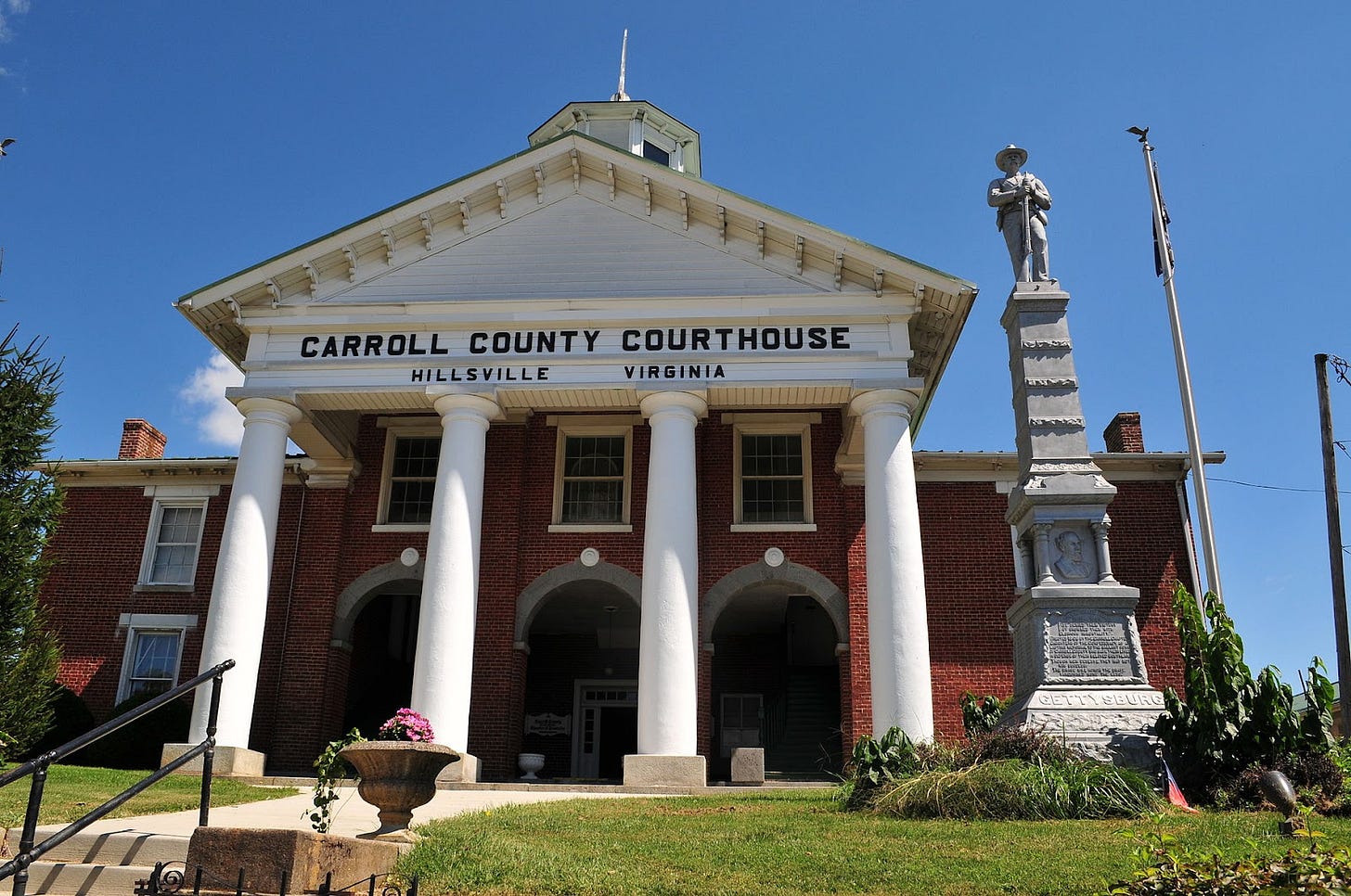S02E10: A Poor Man's Treacle
Tonight’s Tarot: THE LAMB
Freaks of Hazard:
Cbrooklyn112 monthly jammed us with $6! HOT HOT HOT!
FoxFur jahblessed us with a $5 monthly!
LISTEN TO THE FLOYD
Floyd Allen - The Man Behind the Massacre
Have you ever done a Wikipedia rabbit hole dive by clicking the Random Article button over and over? That is how I found out about our guy today, and I was surprised I hadn’t heard of him. We're taking our imaginations all the way to the mid-Atlantic in the time of Red Dead Redemption, where we see a man whose name is synonymous with one of the most infamous events in Virginia history: Floyd Allen. His family was a bit like a reality TV show without the cameras: constantly embroiled in one scandal or another, but Floyd really took the spotlight with his own unique brand of chaos.
Hot Stills and Even Hotter Tempers
Born in 1856 in Carroll County, Virginia, Floyd Allen was a product of his environment. At this time, Virginia was a land of rugged individualism and strong family ties, as well as local feuds and a certain disregard for authority. Floyd, despite limited formal education, was a shrewd businessman. He built a successful farm, operated a store, and dabbled in real estate. His charisma and connections quickly propelled him into local politics.
In the 1896 election. Floyd decided to run for sheriff, a choice that might sound like a noble pursuit…if you didn’t know him. During his campaign, he was known to say things like, “I aim to clean up this town, and if that means a little bit of brawling and intimidation, then so be it.” Sounds like a guy who is intent on serving his community and cleaning up the town that sustained him and his family for generations - but you would be wrong.
You see, there was another side to Floyd Allen. He was known for his fiery temper and a propensity for violence. He has been described as “overbearing, high-tempered, [and] brutal, with no respect for the law and little regard for human life…He had a history of violent altercations, including killing a black man who was supposedly hunting on his property in North Carolina, beating a police officer in Mount Airy and later shooting his own cousin.” [source]
The Allens, were a powerful clan with a reputation for standing their ground, often with force. He was one of seven sons of American Civil War veteran, landowner, and local official Jeremiah Allen. Despite, or perhaps because of, their established authority in their community, the Allens frequently escaped the law with little to no consequences. From Wikipedia, “In several instances he escaped indictment, to which he is quoted as saying, ‘I am satisfied, because the witnesses were afraid to testify to the facts before the grand jury.’”
Along with their agricultural and real estate pursuits, the Allens’ greatest contribution to the local economy was “spirited” and “locally distilled.” And Floyd wasn’t exactly subtle about his moonshine operation. In fact, he once said, “If the government can’t handle my business, then they should stay out of it.” His blatant disregard for the law led to a raid on his property and a subsequent arrest for operating an unlicensed distillery, but that didn’t keep the family from continuing the pursuit more covertly. Another instance of skirting consequences was when Floyd once escaped a chain gang by talking a guard into letting him go get a drink of water.
Always the Criminal, Never the Convict
Floyd Allen’s rap sheet was substantial; he had a certain flair for the dramatic, which often landed him in courtrooms and jail cells. For example: in 1904 Floyd was trying to buy a plot of land from his own brother, however a neighboring farmer named Noah Combs was also interested in the plot and was willing to pay market price. Now, most people would handle this with a polite conversation or, if necessary, a mediator. But Floyd, ever the dramatist, decided to handle it his way – he showed up at the farmer’s property and reportedly declared, “You’re on my land, and if you don’t move, there’s going to be trouble.” Trouble, as you might guess, meant shooting and injuring Combs and Floyd being charged with assault. However, his connections to power people kept him from experiencing any real consequences: “Sentenced by the jury to an hour in jail and a $100 fine, plus costs, Allen immediately posted bail pending an appeal. His defense team included former Commonwealth's Attorney Walter Tipton and recent County Court Judge Oglesby. At the next term of court, Allen produced an order of clemency from Governor Andrew J. Montague suspending the jail sentence,” (wiki).
Despite fierce family loyalty, Floyd also got into violent altercations with his own kin. I have to read directly from wiki for this part because it could not be written better by me:
… while arguing over the administration of their father's estate, Allen got into a gunfight with his own brother, Jasper, known as "Jack", a local constable. In a fusillade of shots, Allen hit Jack in the head, which struck a glancing blow on Jack's scalp, while one of Jack's bullets hit Allen in the chest. His pistol empty, Allen proceeded to beat Jack with the butt of his empty revolver. Sentenced to a $100 fine and one hour in jail for wounding Jack, Floyd refused to go, saying that he "would never spend a minute in jail as long as the blood flowed through his veins". Floyd's body bore the scars of thirteen bullet wounds, five of them inflicted in quarrels with his own family.
I recommend reading the rest of the wikipedia article about Floyd for other specific instances of his family’s interactions with the law because they are plentiful. And while we all love an American anti-hero, this combination of ambition, wealth, and a volatile personality would eventually lead to a violent climax for our guy here.
The Hillsville Massacre
Floyd’s earlier arrests had built him a reputation as someone who wasn’t afraid to take the law into his own hands, and that reputation followed him right into the Hillsville, VA courthouse for the infamous showdown known as the Hillsville Massacre.
In 1912, he once again found himself on the wrong side of the law. He was convicted of a plethora of charges that included assault of an officer of the law, disturbing the peace, various counts of altercations with neighbors, and interfering with those arrested by law (his nephews had gotten into a violent fight over who kissed someone else’s girlfriend at a corn shucking bee). During the trial, Floyd’s comments were as colorful as his past; he famously said, “I’ve been fighting all my life. If they want a fight now, I’ll give them one.” And he did. What transpired next is the stuff of legend, or rather, infamy. In a scene straight out of a Western, Allen and his supporters opened fire on the courtroom, killing the judge, the sheriff, the prosecutor, a juror, and a bystander. It was a brazen act of defiance that shocked the nation. The ensuing manhunt was intense. Allen and his sons managed to escape briefly but were eventually captured and convicted of murder. The public was outraged and demanded justice. They were tired of seeing this man and his family terrorize the locals and get away with literal murder.
Even after his arrest in the courtroom shootout, Floyd’s defiance was unrelenting. When asked about his future, he stated, “They can lock me up, but they can’t keep my spirit down. I’ll go down fighting.” After an intense manhunt with continued resistance and sass from Floyd, he and his son Claude were executed in 1913. From Richmond Magazine:
“At 1:31 p.m. on March 28, 1913, Floyd Allen was pronounced dead by electrocution at the Virginia State Penitentiary in Richmond. He was 56 years old, and it was said that he faced death silently and unafraid.
"I'm ready to go," he whispered, as he seated himself in the electric chair.
Eleven minutes later, his 23-year-old son, Claude — a dark-haired charmer, who had a reputation for making women tremble with his good looks — followed his father without protest into the death chamber, his pace steady without hesitation.
The penitentiary had encountered early failures with its new electric chair, installed in 1908, and officials wanted to be certain that dead was dead. So, Floyd Allen was subjected to 2,000 volts of electricity four times in succession. Claude was pronounced dead after two rounds of voltage.”
Legacy and Controversy
Floyd’s life was a series of bold statements and dramatic confrontations that made him a historical figure like no other. The story of Floyd Allen is a tale of ambition, violence, and the enduring power of family loyalty on the American frontier. Despite all the chaos, there's something undeniably charming about Floyd Allen. He was a product of his time, a man out of step with the law but deeply rooted in his community. He was a symbol of defiance, a reminder that sometimes, the most interesting people are the ones who don't play by the rules.
Sources and Images
Floyd Allen: The Untamed Legacy of Hillsville's Outlaw Patriarch #appalachia #outlaws
Bob Grebe's Virginia - Floyd Allen & the Carroll County Courthouse
Floyd Allen (1856–1913) - Encyclopedia Virginia
Gunfire in the Courtroom - richmondmagazine.com
Floyd AllenMembers of the Allen Clan [source]
Location of the Hillsville Massacre
The Sidna Allen family home, built overlooking the Blue Ridge Mountains
GARLIC! GOLD! GODLINESS!
We read from Man, Myth, and Magic on a couple sweet topics.
OPENER
INTERMISSION
Swimming In Sunshine - Homeless Moses
To Be In Nashville - The HeyCitizen Experience
CLOSER
TAKE THESE, IT’S DANGEROUS TO GO ALONE!



